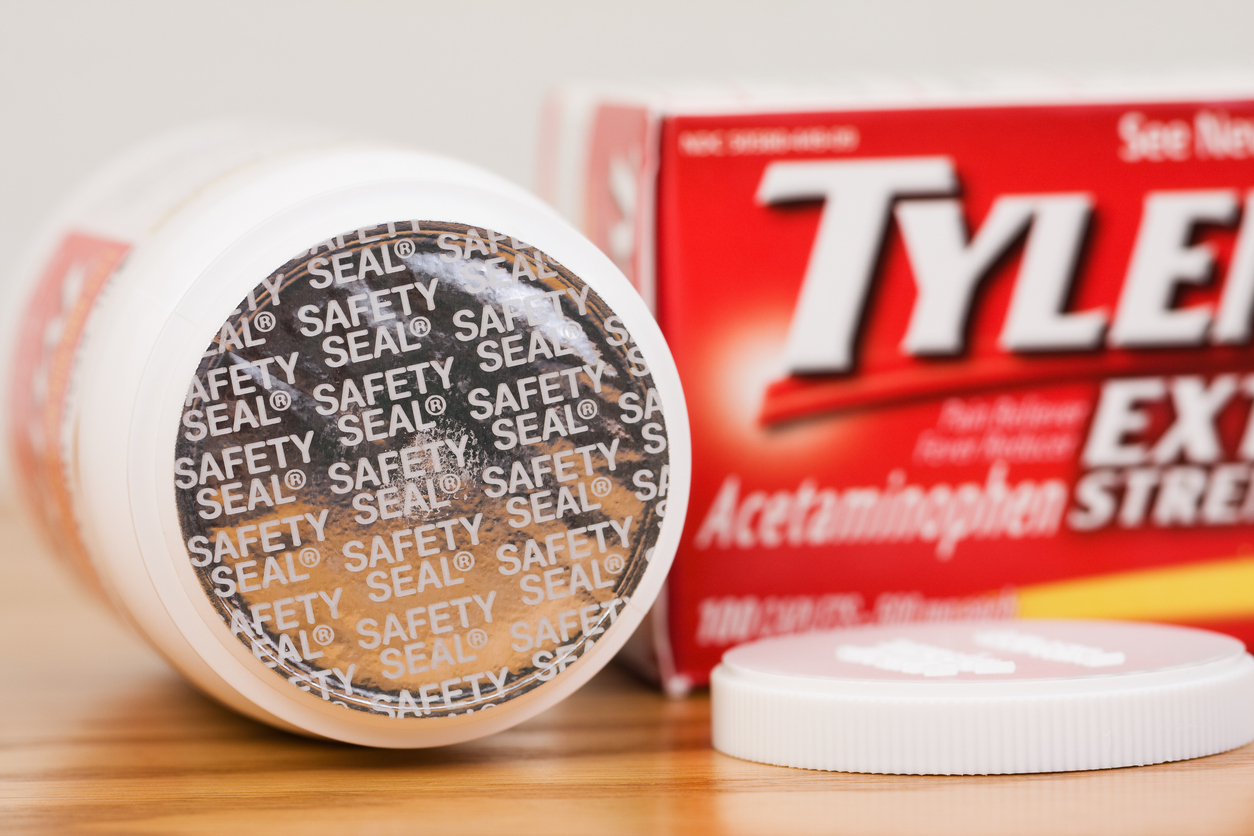
In 1982, a killer filled Tylenol capsules with potassium cyanide and placed the bottles back on store shelves. Unsuspecting consumers purchased the tainted medicine and at least seven people died, with the killer unknown to this day.
Tylenol, then owned by Johnson & Johnson, immediately launched a major PR and advertising effort informing the the public not to take the drug, and stopped its own manufacture and promotion of Tylenol.
Six months later, they rolled out a new tamper-resistant packaging for the pills that remains the basis of what you’ll find on store shelves today.
Anthony D’Angelo, professor and public relations chair at Syracuse University, still teaches the 40-year-old crisis response in his classes.
“Even today’s students, who were far from being born, know about the Tylenol case,” he said, calling it “the gold standard” of crisis PR.
But now Tylenol is being tested again by the government’s allegations – hotly contested by the scientific community – that there is a link between acetaminophen during pregnancy and autism. There are both key differences and similarities between the two cases, said Meghan Tisinger, managing director at Leidar USA, which specializes in crisis comms.
“Back then, the truth had time to catch up,” she explained. “That’s one of the problems with today — misinformation moves at the speed of a tweet. You can’t respond to everything, because you’re not only recalling products, you’re recalling fear and rumor and outrage. You’re doing this in real time. But what really hasn’t changed is the fundamentals: acting on your values, leading with empathy, and making sure your behavior speaks louder than any press release would.”
Tylenol’s tactics so far include a pop-over statement on their website, which begins with, “We stand with science and we stand with you,” before going on to explain that, “Tylenol is one of the most studied medications in history–and is safe when used as directed by expecting mothers, infants and children.” An extensive FAQ on their website points to outside groups, including the American College of Obstetricians and Gynecologists and the Autism Science Foundation, who support Tylenol’s stance.
Tisinger said this third-party validation can help in a situation like this –- but it only goes so far.
“When Tylenol had their crisis in 1982, they wrote the textbook because it was all about quick action,” she said. “It was about empathy. It was about human voice. Science organizations are going to give them credibility. They’re going to help them. But at the end of the day, they have to have that human voice, and they have to start with really putting that moral authority on it: ‘We understand that these claims cause fear. You deserve clarity, not confusion.’ And then bring in those credible third-party medical voices — not the corporate spokesperson — to tell the story.”
Using the PESTLE model in a crisis
The Tylenol case combines multiple modern-America storylines: the Make America Health Again movement, the clash between competing views over how science can be trusted, the government’s intense involvement in private businesses. D’Angelo suggests using the PESTLE model to examine the impacts from multiple angles and determine the best path forward:
Political
Economic
Social
Technological
Legal
Environmental
“At a practical level, it’s never going to be easy,” D’Angelo cautioned. “But if you look at it that way — what are all the forces acting on our business right now? Political, that’s tough. How do we handle that? Social, where even medicine and science become political issues. What does that mean for how you communicate?”
D’Angelo also recommended looking to the 1982 killings as a source of inspiration for today.
“What could also be learned from the 1982 case is that it’s a real leadership test,” he said. “How are we going to conduct ourselves in this situation? Despite all the noise in the channel — and man, is there a lot of noise — I still have faith that organizations that know their mission and conduct themselves according to it and are willing to bear the costs of fulfilling it, tend to turn out pretty well over time.”
Tisinger took a slightly darker view of the situation, recalling the words of Richard Levick, considered the father of reputation management.
“’Facts will eventually win, but only if your voice is still standing when they do,’” she recalled.
Allison Carter is editorial director of PR Daily and Ragan.com. Follow her on LinkedIn.
COMMENT
